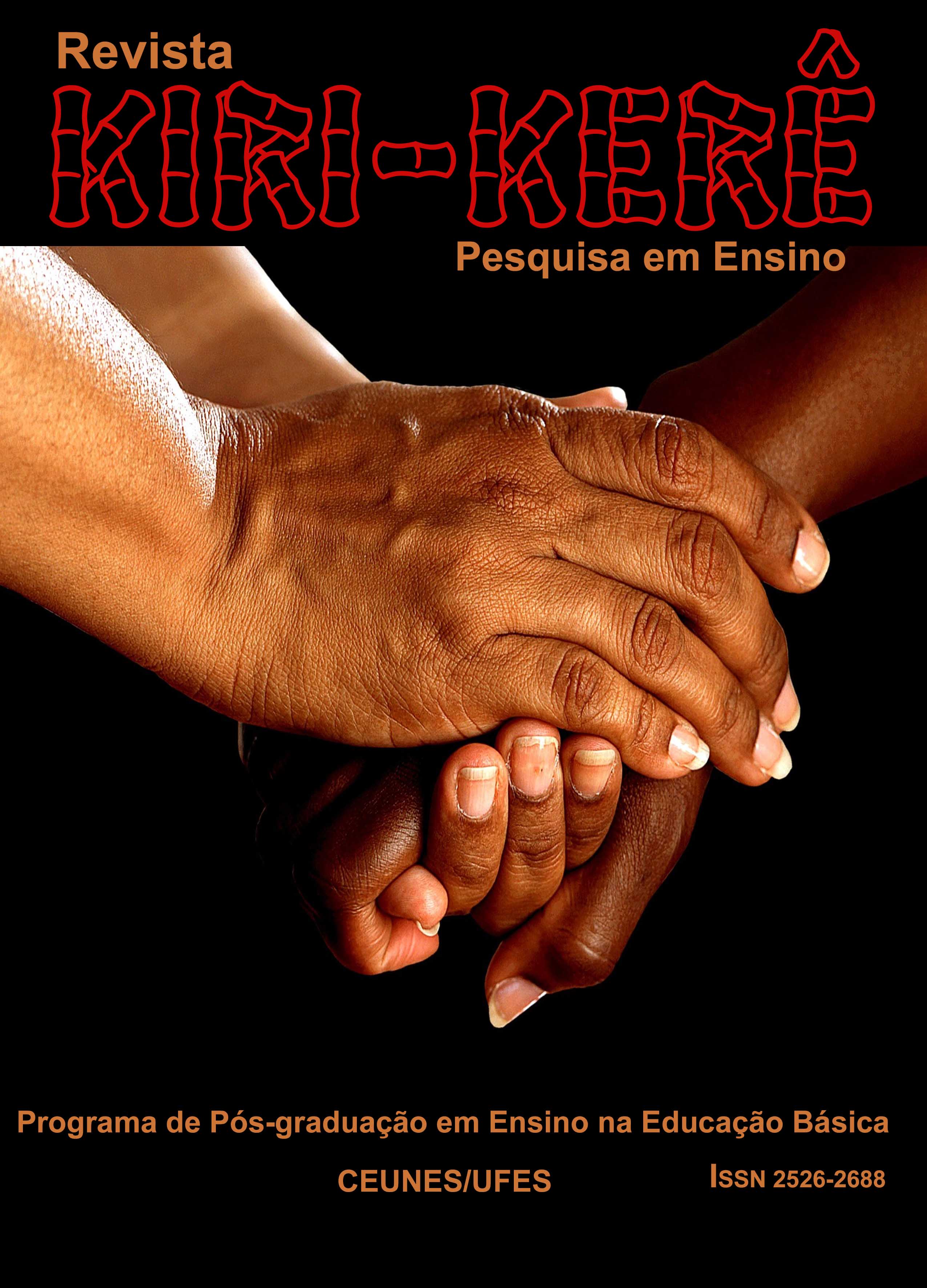ENSEÑANZA POR INVESTIGACIÓN PARA EL ESTUDIO DE LAS LEYES DE NEWTON A DISTANCIA EN EDUCACIÓN PRIMARIA
DOI:
https://doi.org/10.47456/krkr.v1i14.37389Palabras clave:
Ensino por Investigação; Sequência de Ensino Investigativa; Leis de Newton.Resumen
Este artículo tiene como objetivo analizar cómo las secuencias de enseñanza de investigación (seis) guiadas en las tres leyes de Newton pueden potenciar el desarrollo del proceso de alfabetización científica (BC) de los estudiantes de la escuela primaria. Para trabajar de manera investigativa, se elaboraron tres seis, correspondientes a cada una de las leyes de Newton. Los seis pasos recorridos: problema, sistematización del conocimiento, contextualización social y evaluación. Se aplicaron con estudiantes desde el noveno año de la escuela primaria, en el municipio de Cachoeiro de Itapemirim (ES), remotamente mediado por el entorno virtual de Google Classroom. Los datos se recopilaron a través de cuestionarios, scripts experimentales y producción de cómics analizados por análisis de contenido, y de esta manera buscó identificar los indicadores del presente AC en las producciones de los estudiantes. Desde el análisis de los datos, fue posible percibir la evidencia sobre el desarrollo de los procesos de CA por parte de los estudiantes, teniendo en cuenta los indicadores de la CA y el uso del conocimiento científico y su despliegue en las diferentes esferas de su vida. Ante las respuestas de los estudiantes, se destaca que el razonamiento lógico ha sido en mayor evidencia, ya que está relacionada con la comprensión de cómo se han desarrollado y presentado las ideas. También se destaca la justificación y el pronóstico, lo que hace que las respuestas sean más seguras y explicadas a la declaración que sucede asociada con ciertos eventos. De los resultados satisfactorios, se cree que los seis elaborados potencian el proceso de CA.
Palabras clave: Investigación por investigación. Secuencia de la educación de investigación. Leyes de Newton.
Referencias
BARBOSA, Alessandro Tomaz; FERREIRA, Gustavo Lopes; KATO, Danilo Seithi. O ensino remoto emergencial de Ciências e Biologia em tempos de pandemia: com a palavra as professoras da Regional 4 da Sbenbio (MG/GO/TO/DF). Revista De Ensino De Biologia Da SBEnBio, v. 13, n. 2, p. 379-399. 2020. Disponível em: https://doi.org/10.46667/renbio.v13i2.396.
BOGDAN, Robert; BIKLEN, Sari. Investigação qualitativa em educação: uma introdução à teoria e aos métodos. Portugal: Porto Editora, 1994. Disponível em: https://docente.ifrn.edu.br/albinonunes/disciplinas/pesquisa-em-ensino/investigacao-qualitativa. Acesso em: 27 nov. 2019.
BRASIL. Ministério da Educação. Base Nacional Comum Curricular. Ministério da Educação, Brasília, DF: MEC, 2017. Disponível em: http://basenacionalcomum.mec.gov.br/.
BRASIL. Ministério da Educação. Base Nacional Comum Curricular. Brasília, 2018.
CARVALHO, Anna Maria Pessoa de. Ensino de ciências por investigação: condições para implementação em sala de aula. São Paulo: Cengage Learning, 2013.
CARVALHO, Anna Maria Pessoa de. O Ensino de Ciências e a proposição de sequências de ensino investigativas. In: Ensino de Ciências por investigação: Condições para implementação em sala de aula. São Paulo: Cengage Learning, v. 1, p. 1-19, 2018.
ESPÍRITO SANTO, Estado. Currículo Básico da Escola Estadual. Secretaria da Educação, SEDU. 2018. Disponível em: https://sedu.es.gov.br/Media/sedu/pdf%20e%20Arquivos/Curr%C3%ADculo/SEDU_Curric_Basico_Escola_Estadual_(FINAL).pdf. Acesso em: 18 nov. 2019.
SASSERON, Lúcia Helena. Alfabetização Científica no Ensino Fundamental: estrutura e indicadores deste processo em sala de aula. 2008. 265f. Tese (Doutorado em Educação) – Faculdade de Educação, Universidade de São Paulo, FEUSP, São Paulo, 2008.
SASSERON, Lúcia Helena; DE CARVALHO, Ana Maria Pessoa. Almejando a alfabetização científica no Ensino Fundamental: a proposição e a procura de indicadores do processo. Investigações em Ensino de Ciências, Porto Alegre, v. 13, n. 3, p. 333-352, 2008. Disponível em: https://www.if.ufrgs.br/cref/ojs/index.php/ienci/article/view/445/263.
VYGOTSKY, L. S. A formação social da mente. São Paulo: Martins Fontes, 1999.
Descargas
Publicado
Número
Sección
Licencia
Derechos de autor 2022 FABIO TOGNERI TELLES, Cassiana Barreto Hygino Machado, Vantelfo Nunes Garcia, VALERIA SOUZA MARCELINO

Esta obra está bajo una licencia internacional Creative Commons Atribución-NoComercial 4.0.
Os autores aceitam, quando do envio de seus trabalhos, a cessão dos direitos editoriais dos mesmos.









